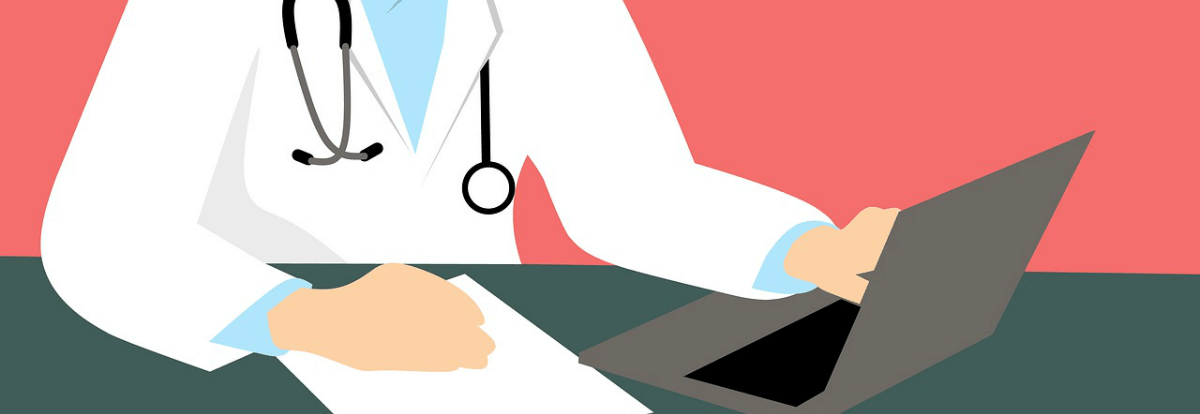Tag: medication

In a bid to save some £265m a year, there are set to be free prescription changes to stamp out abuse of the system.
The aim of the changes are to tackle fraudulent free prescriptions that could be wasting millions in valuable resources. From patients not entitled to free prescriptions, to some pharmacists and dentists receiving payments for phantom procedures, it’s an issue that needs resolving.
As the NHS continues to struggle with underfunding, a lack of resources and staff shortages, we can’t have any avoidable waste in the system.

A former health minster spoke out recently over conspiracies and closing ranks in the tragic Gosport Hospital deaths scandal.
Former health minister Normal Lamb spoke about the “systematic failures” and NHS “closing ranks” over the tragedy, as well as a “conspiracy to cover this up”. He suggested that both the NHS and Whitehall had refused to face up to the reality of the tragedy which has led to potentially hundreds of premature deaths.
The evidence in the investigations has found what appear to be clear opportunities to have avoided potentially hundreds of deaths. How were these opportunities missed?
Read More “Conspiracies and closing ranks in the Gosport Hospital deaths scandal”

There’s been a recall during the summer over valsartan cancer risks that have been identified. A recall has been triggered by regulators.
The Medicines and Healthcare products Regulatory Agency (MHRA) has been involved in the recall process. The recall has been triggered over impurities originating from the manufacturing process in China. The impurities are understood to be linked to cancer.
Patients using heart medications that contain valsartan are being asked to speak to their doctor or pharmacist ASAP.

It’s understood that the HPV vaccine reduces cervical cancer, with a decrease of 86% seen in women aged between 16 to 21.
The recent government reports states that vaccinations to defend against the Human Papilloma Virus (HPV) 16 and 18 infections is working. These infections are known to cause the majority of cervical cancer cases.
The information published over the summer in the Journal of Infectious Diseases is welcome news. The data suggest that the HPV vaccination programme will lead to significant reductions in cervical cancer cases arising in the future.

Worsening NHS budget issues resulting in GP prescription problems could lead to deaths for those who rely on medication to survive.
There appears to be increasing numbers of stories about patients who are being denied the prescription drugs they need to stay well or even keep alive as a result of budget constraints, or cases where patients are having to wait longer or visit their surgery more frequently as numbers of drugs issued are reduced.

Patients are being put off amidst concerns over GPs being paid to prescribe statins. The potentially life-saving medication that can lower cholesterol to avoid heart attacks and strokes is often scrutinised by patients over financial incentives GPs reportedly receive for handing them out.
There’s apparently a widely-held belief among Brits that the statins they’re given aren’t needed because of GPs being paid to prescribe statins.
Is this just a case of mistrust over GPs being paid to prescribe statins, or should patients be worried about what they’re GPs are telling them to do?
Read More “Patients puts off as GPs being paid to prescribe statins”

America is currently suffering with what is widely reported as an “opioid crisis” off the back of what some have alleged is a simple case of over-prescribing medications to patients for an array of ailments that can be treatable by other means. In the UK, there are concerns that doctors are relying on prescription drugs too much to treat people with ailments or issues they could use alternative help for, and the upshot is patients getting addicted to such medication.
Whether it’s a case that the dangers of such medications need to be better explained or better controlled, or where it’s down to the need to prescribe less medication – or both – doctors are worried that the lack of help for patients hooked on drugs is putting lives at risk.
Read More “Doctors concerned people addicted to prescription drugs may not be receiving enough help”

The principle of only seeing your doctor if you need to, and only going to hospital or dialling 999 in an emergency, is sensible.
As many ambulances often advertise: you wouldn’t call the fire department to blow out a candle, would you?
The idea is that you should try and help yourself before using the NHS; but what about the dangers of diverting patients for self-care or private care? What are we risking here?
Read More “The dangers of the NHS diverting people away to private services”

The ‘Keep Antibiotics Working’ campaign is urging patients not to ask their GP or doctor for antibiotics in a bid to tackle the reported growing resistance to the medicine.
When we have an infection, antibiotic treatments can help to kill the bacteria. However, around 5,000 people reportedly die each year in England because antibiotics don’t work for some infections because they’ve grown a resistance to the medicine.
The campaign was launched by Public Health England in recognition that overuse of antibiotics – and other factors – has helped infections strengthen their resistance to the medicines.
Read More “Calls for people to stop using – or reduce the use of – antibiotics”

AmerisourceBergen Specialty Group admitted to a court that its subsidiary company, Medical Initiatives Inc (MII), illegally distributed misbranded a cancer drug for 13 years.
They were reportedly shipping the drugs from a facility that wasn’t registered with regulators, and following the conviction, the company has been ordered to pay almost £200m in fines.
The guilty company was found to have been working outside of regulatory review and scrutiny as its facility was never registered with regulators as either as a manufacturer or a re-packager.
Read More “Medical company guilty of distributing misbranded cancer drug for 13 years”

Mental health care has gained more recognition and dedication of resources to help those who suffer from mental illness over the last few decades. Antidepressants can be used to treat symptoms of depression and can help the body to produce hormones that promote positive mood-levels and emotions and can even reduce pain. However, as with many drugs, this kind of medication can have potentially dangerous side effects such as “akathisia”.
Although the drug carries warnings of potentially increasing the risk of depression and suicidal thoughts in people under the age of 25, recent developments suggest that it could also impact those over 25 as well…
Read More “Antidepressant side effects may increase risk of suicide by triggering “akathisia””

Plagued by a reported opioid crisis, the U.S. has released national statistics on drug-related deaths, revealing staggering results that reflect the country’s problems.
In the last year alone, the U.S reports a death toll of 64,000 for people who suffered fatal overdoses.
Here in the U.K., the Office for National Statistics puts the figure for deaths involving substance abuse at 952, which is a significant increase from 579 just five years ago. Irrelevant of whether our death-rates are nowhere near as bad as the U.S. or not, the issue is that the U.K. could be headed in a similar direction to the U.S. when it comes to medicinal drug overuse and problems, and this cannot be ignored.
Read More “A reported 22% increase in fatal drug overdoses involving Fentanyl in just one year”
